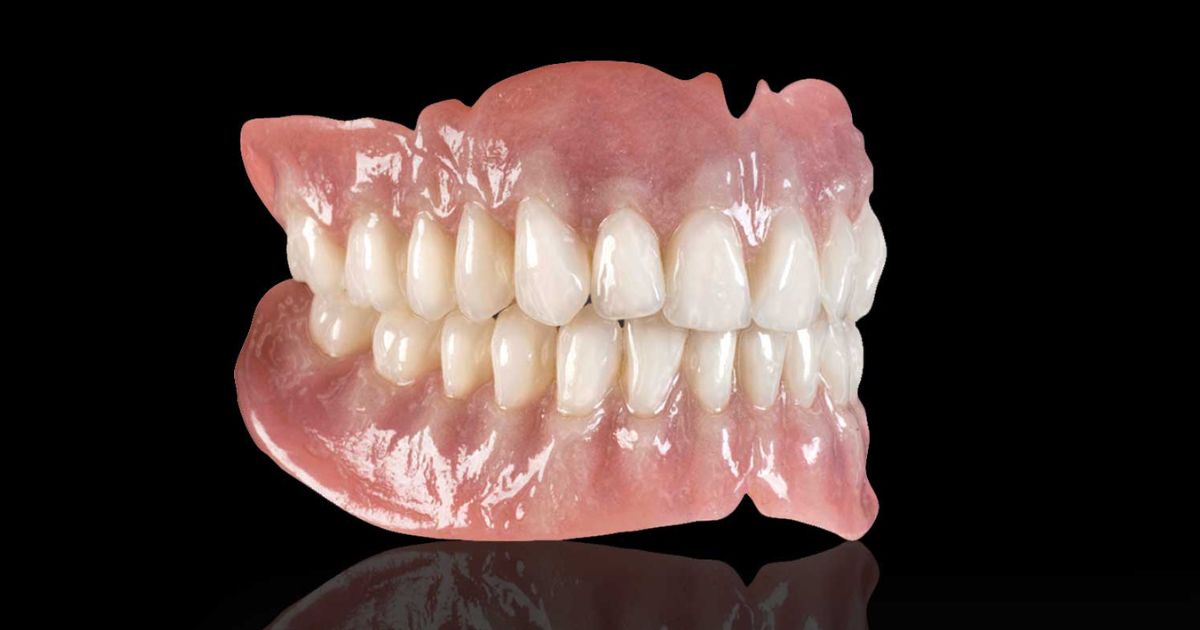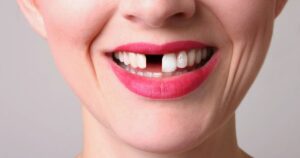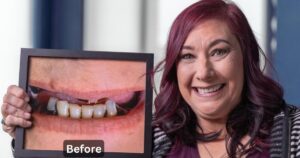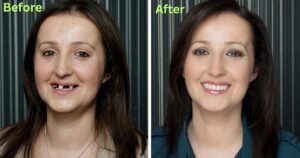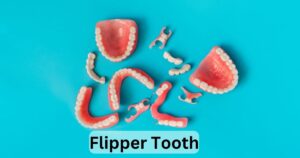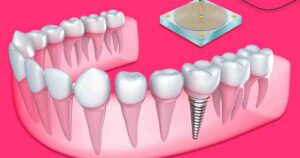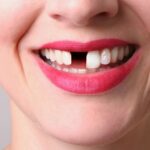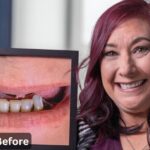Dentures are removable replacement teeth that can restore confidence, speech, and the ability to chew. While dentures seem like an expensive solution, affordable options are available. This guide covers the benefits of dentures, risks of tooth loss, affordable dental clinics, assessing fit and comfort, types, cleaning, and replacement schedules.
Reasons for Dentures
Dentures are usually needed after tooth loss from gum disease, injury, or long-term poor oral health. Missing teeth can impact appearance and function. Dentures fill gaps to restore eating abilities and prevent further jawbone shrinkage. They protect the remaining teeth and prevent shifting.
Partial Dentures: A More Affordable Starting Point
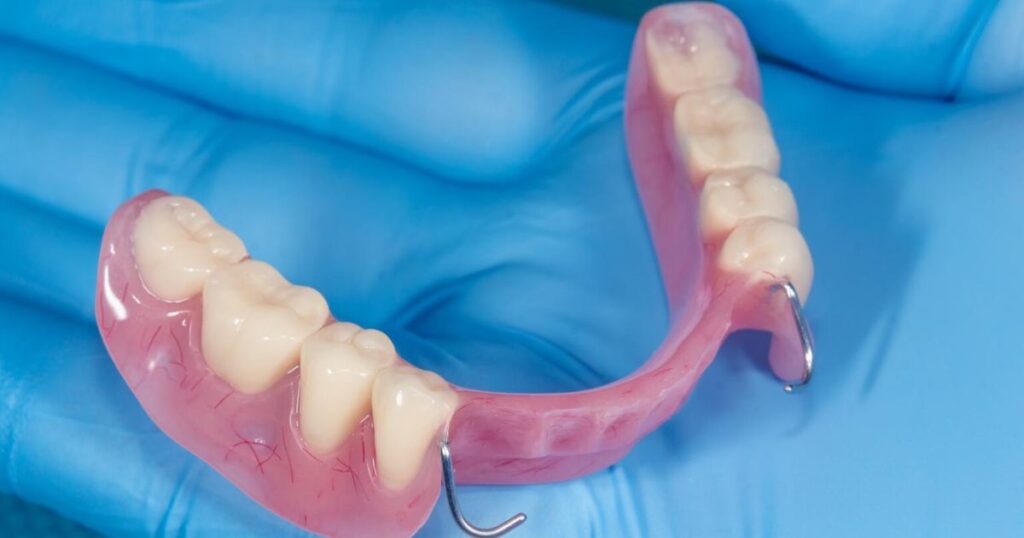
Partial dentures are a good first choice for those missing some but not all teeth. They are removable and snap over existing natural teeth to fill gaps. Partials often preserve surrounding tooth structure and bone for long-term oral health.
While custom partials made by a dentist cost $800-1500 normally, other options exist. Some dental schools and community centers offer partials for $400-800 made by students under dentist supervision. Online retailers also sell do-it-yourself partial denture kits for $100-300. While not as durable as custom-made, DIY partials can improve functionality at a low cost.
Basic Full Dentures: An Affordable Complete Solution
Losing all teeth might seem to require costly implant-supported dentures, but basic dentures are a very affordable long-term solution starting around $800-$1200 for the pair. Basic dentures are removable plates that snap onto the gums to replace missing teeth.
They may not look or function exactly like natural teeth but allow chewing, speaking, and an improved appearance at a fraction of the cost of implants. Made with dental stone models, they fit well and last several years when cared for properly. Community health centers are sometimes the most affordable option for basic dentures.
Risks of Tooth Loss
Tooth loss is a long-term risk of gum disease and factors like smoking. It raises the risk of malnutrition and other diseases. Missing teeth lead to sunken facial features due to bone loss over 5-10 years. This impacts self-esteem. Dentures aim to replace teeth before irreparable damage occurs.
Affordable Dental Clinics
While average denture costs are $1,500-$3,000 per set, low-cost options exist. Community health centers and dental schools offer reduced rates. Membership dental clubs like Aspen Dental provide financing for preventive and restorative care. Research nearby providers specializing in affordable dentures.
Cost Savings Tips for Full Dentures
- Ask about payment plans to spread costs over several months interest-free.
- Check if your dental insurance covers any portion of denture costs.
- Enroll in state healthcare programs if available based on income level.
- Compare prices of different local dentists and dental schools or community clinics.
- Request generic/basic materials rather than premium resins which translate to big cost differences of a few hundred dollars.
- Consider traveling to dental tourism destinations where dentures can cost 30-60% less than in the US/Canada.
With some research, it is possible to find very affordable full denture options even for those without insurance or on limited budgets.
Affordable Partial Denture Materials
| Material | Description | Durability | Cost vs Acrylic |
| Acrylic (plastic) | Most affordable material. User-friendly but potential warp from temperature changes. Best for anterior teeth spaces. | Less durable | Baseline |
| Flexible Nylon | More durable than acrylic. Flexes to click over teeth but not as natural feel. | More durable | 15-20% more |
| Valplast (flexible thermoplastic) | Durable, comfortable and stable material. | Most durable | 30-40% more |
| Metal Alloys | Strongest material, least likely to break | Most durable | 2-3 times more |
For most affordable partial dentures, flexible nylons or acrylic materials are excellent cost-effective choices unless extensive metal clasping is required.
Choosing Basic Full Dentures
The main denture materials that determine price are:
- Thermoplastic
Form-fitted material was similar to Valplast which retains heat for a snug fit. Very durable but 2-3x more than standard acrylic dentures.
- Standard Acrylic
Most common basic denture material. Affordable and easy to repair if broken.
- High Impact Acrylic
A slightly more durable version of standard acrylic at a 10-15% higher price.
- Microplastic
Very natural feel but is porous so higher maintenance costs. Up to 50% more than standard acrylic.
For affordable full dentures, standard acrylic materials are usually the most cost-effective unless needing extra durability factors like significant jaw ridges.
DIY Denture Options for Major Savings
For those on a very tight budget, it is possible to make functional temporary dentures at home. While not long-term solutions, DIY dentures provide an affordable temporary fix:
Boil & Bite Appliances –
Soft trays that mold to gums. Cheapest at $30-60 per set but don’t last.
Drill-It-Yourself Kits –
includes plaster to make stone molds, denture bases, and unfitted artificial teeth. Average $75-150 for a pair.
3D-Printable Digital Designs –
STL files to 3D print snap-fit denture bases at home if you have a 3D printer. $25 for files but requires equipment.
While not as durable or precision-fitted as professionally made dentures, these low-cost DIY options help restore basic function and smile for short-term use until affording custom dentures.
Low-Cost Denture Maintenance Tips
Proper cleaning prevents denture issues like odor, staining, and infection that could necessitate replacement earlier:
- Gently brush with denture soap and soft brush after meals to remove particles.
- Soak in denture solution overnight weekly to deeply disinfect and remove buildup.
- Scrape off hardened plaque under warm water if brushing is insufficient using a denture brush or spoon handle.
- Avoid using harsh bleach or abrasive cleaners that damage material over time.
- Reline as needed with over-the-counter adhesive if worn areas cause irritation or looseness.
Proactive cleaning extends denture lifespan and avoids expensive repairs or replacements down the road.
Potential Complications
Even with affordably priced dentures, there may be some initial challenges as the mouth adjusts:
- Sores
Rubbing injuries heal within weeks as gums condition. Polident or coconut oil can speed up relief.
- Looseness
Adhesive or reline kits tighten mild cases. Bite adjustment may help with severe loosening.
- Bite Problems
Seeing the dentist ensures proper positioning. Adjustments can save long-term costs from damage.
- Speech Issues
Practice reading aloud to quickly retrain muscles. Most speech impediments subside quickly.
Most common new denture issues are resolved easily with temporary fixes or adjustments. Seeing the dentist right away prevents bigger costs down the line.
H2 Dental Financing Options
For those who cannot afford even basic dentures up front but cannot wait to improve oral function and confidence, financing may help. Options include:
CareCredit
Dental-specific credit card offers no-interest financing for 6 months to 3 years.
Personal Loans
Smaller personal loans of $1000-5000 may cover treatment costs. Compare rates carefully.
Medical Financing Companies
Some specialize in dental and provide repayment plans. Thoroughly research terms and costs.
Community grants
Foundations and service organizations sometimes offer one-time dental grants for low-income individuals.
With the right financing option tailored to individual circumstances, it is possible to attain dentures in an affordable, controlled-cost manner over time rather than delaying treatment indefinitely.
Signs of Poor Fitting Dentures
Signs of Poor Fitting Dentures:
| Sign | Description |
| Discomfort/sores inside the mouth | Rubbing or ill-fitting border causing pain or sores |
| Difficulty eating certain foods | Foods that used to be easy, like raw veggies, become difficult to eat |
| Slipping or shifting | Dentures slip or shift frequently when eating or speaking |
| Gaping spaces | Visible spaces between denture teeth and gums |
| Compression marks | Visible marks on gums where dentures were sitting improperly |
| Looseness | Clicking/flapping noises when speaking or yawning from looseness |
| Jaw pain/tenderness | Develops over time from wearing poor fitting dentures |
| Shorter dentures | Receded gums cause dentures to feel shorter in length |
| Friction lines | Visible irritation marks on gums from denture contacts |
| Smaller dentures | Spaces previously comfortable now feel tighter or smaller |
| Changes in bite | Back teeth no longer meet properly when clenching |
Seeing the dentist promptly can allow minor adjustments to preserve oral health if any signs of poor fit develop.
Pros and Cons of Dentures
Pros:
- Restore the ability to eat most foods normally
- Improve speech ability
- Boost confidence and self-esteem with a full smile
- Require less oral healthcare than with partial natural teeth remaining
- Relatively affordable option to regain oral function
- Can be removed for cleaning unlike implants or bridges
- Preserve the remaining jawbone which may shrink without teeth
Cons:
- May take getting used to due to the difference from natural teeth
- Potential issues with looseness, sores, or misfitting initially
- Require diligent cleaning to prevent problems
- May need relining or rebasing occasionally if gums shrink over time
- Cannot survive high-impact activities unlike real teeth
- Do not feel or function the same as natural teeth
- A completely removable nature may cause speaking issues for some
- Long-term bone and gum health risks if not fitted properly
In general, dentures provide an affordable and functional solution for full mouth rehabilitation but do require adjustments and continued dental care for best results. The pros of improved nutrition, speech, and self-esteem tend to outweigh the cons for most wearers.
Long-Term Denture Care
- Visit the dentist every 6 months for professional cleanings and checks. Dentures may need relining or rebasing every 3-5 years.
- Brush dentures after each use with a non-abrasive denture cleaner and brush. Soak in diluted mouthwash or cleaning solution overnight weekly.
- Avoid using abrasive cleaners or toothpaste which can damage plastic over time. Denture brushes are specifically shaped for easy cleaning.
- Use fixative adhesive creams when dentures are new to allow wearing while gums heal. Then switch to occasional use for better retention.
- Remove at night and clean to prevent infection risks from all-day wear. Consider soaking in bleach solution nightly as a disinfectant.
- Reline dentures as needed if loose or sore spots develop due to shrinking gums. Over-the-counter kits work for minor issues.
- Have a spare set of dentures made in case of breakage to maintain nutrition until repairs.
- Wear an athletic guard or mini dental when participating in high-impact sports to prevent fractures.
- See the dentist as soon as retention, fit, or discomfort issues arise rather than waiting for permanent damage.
Proper cleansing, occasional relining, and prompt dentist visits help dentures last 5-10 years on average.
Alternatives to Dentures
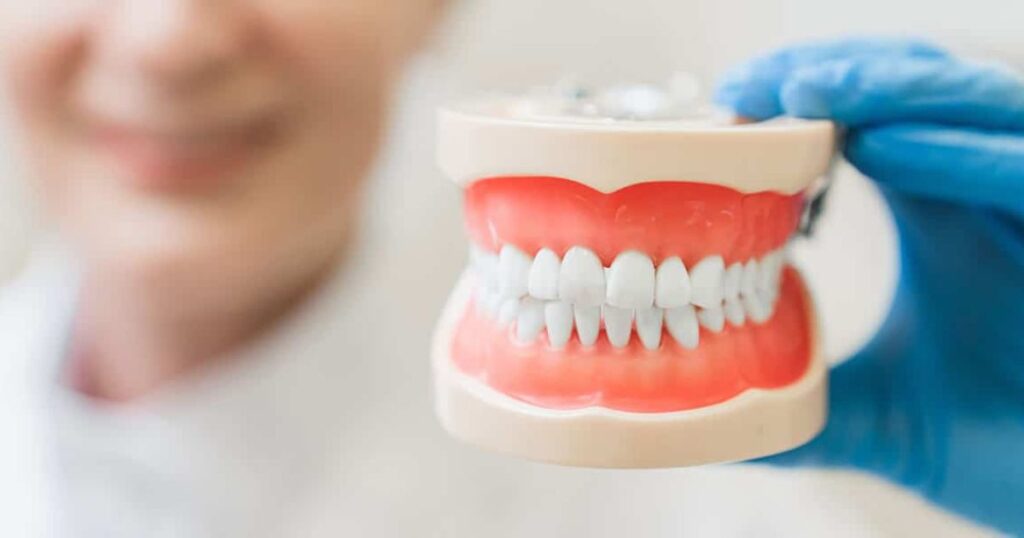
Dental Implants
Artificial tooth roots are implanted surgically to support individual crowns or bridgework. More expensive initially but the most natural replacement.
Partial Dentures
Removable replacement teeth anchored to existing natural teeth. More affordable than implants and allows the preservation of natural roots.
Dental Bridges
Artificial teeth secured by crowns cement over existing teeth on either side. Hide empty spaces but requires grinding down healthy adjacent teeth.
Dental Bonding
Tooth-colored composite resin molded and bonded onto teeth to cover gaps. More conservative but only a cosmetic, not a functional solution.
Dental Veneers
Thin shells made of porcelain or composite resin cemented onto front teeth. Hide gaps or improve the aesthetics of damaged/discolored teeth.
Tooth-Supported Dentures
A cross between a denture and a bridge fits over natural tooth roots to stay in place. More stable than regular dentures.
Implant-Supported Dentures
Dentures anchored by dental implants for improved retention, support, appearance, and function over regular dentures.
The best alternative depends on individual dental health, budget, and desired level of function versus appearance.
Frequently Ask Questions
How much is a new set of dentures?
The cost can range from $800-$3000 per arch depending on the materials and complexity. Basic dentures start around $800-1200 for both upper and lower.
What is the cheapest option for false teeth?
DIY denture kits available online for $50-150 or boil and bite appliances for $30-60 per set provide very low-cost temporary solutions.
Which dentures are most affordable?
Basic acrylic dentures made by a dentist or dental school can cost $800-1200 for a full set, making them the most affordable permanent denture option.
What is the cheapest price for dentures?
The absolute lowest denture costs are DIY/temporary kits ranging from $30-150. Low-cost basic dentures from dental schools or community clinics start at $400-800 per arch, making full sets possible for under $1000.
Conclusion
Whether choosing basic full dentures, affordable partial dentures, or a do-it-yourself temporary solution, there are viable options for regaining oral health and confidence without breaking the bank. Taking time to research costs, materials, local providers and financing alternatives enables people on all budgets to improve their quality of life through denture solutions.
Wearing affordable dentures may require some adjustments but provides life-changing benefits of restored nutrition, speaking ability, and self-esteem through a confident smile. With proper care over time, affordable dentures can last for many years of improved functionality while preserving underlying jawbone structure for continued dental health.
